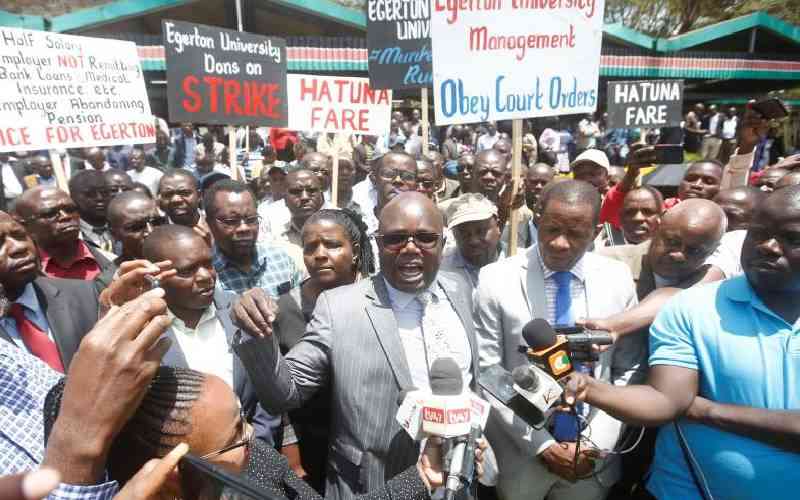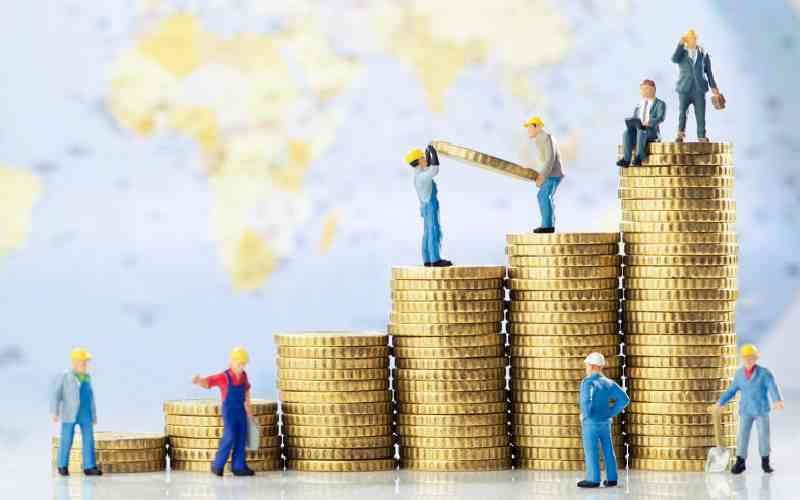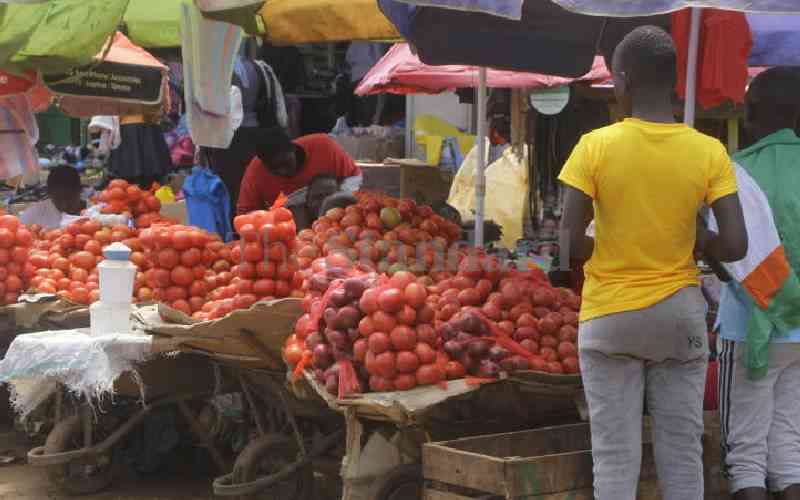
This past week, I have been reading Ahmed Issack Hassan's biography, ‘Referee of a Dirty Ugly Game’. Ahmed is a former chair of the transitional Interim Independent Electoral Commission and founding chair of its successor, the Independent Electoral and Boundaries Commission.
While Ahmed and his fellow commissioners may have faded away from national public memory, the former chair has been gracious enough to immortalise his experience in his biography. Going through it, one cannot fail to see how the chips are falling in place both in our politics and the economy.
It is good for the country he has documented the dirty ugly games politicians and senior public officials play behind the scenes, all to feed their greed for power and money. In the process, they sacrifice the very public good they were sworn in to serve and suck blood out of the masses they represent.
This biography equivocally confirms that institutions established by the Constitution to represent the people and oversight management of public resources are the weakest link in the country’s constitutional and economic governance order. For the avoidance of doubt, I am referring to Parliament and the 47 County Assemblies.
Based on Ahmed’s accounts for the seven-plus years he served at the helm of the country’s electoral body, it appears that integrity is the least of the competencies required to serve in big offices. It is also easy to see that the majority, if not all senior public appointments are done in the hope that those appointed will unquestioningly do the bidding of the appointing authority and those entrusted with the sacred duty of vetting them.
From the travails of the ‘Chairman’, as Ahmed is fondly referred to in the biography, it requires no genius to see that even the institutions we refer to as constitutional Commissions and Independent Offices may exist only in theory. They may be filled with loyalists whose sole mission is to advance the interest of their political masters. Those who dare defy this political abuse, like Ahmed did, end up paying a heavy price at personal and family levels.
Crumbling order
What seems lost to these well-established political and bureaucratic mercenaries is that pervasive socio-economic order has its limits both in society and the economy. This brings me to the core of today’s article of the crumbling socio-economic order around us. In a way, one cannot fail to sympathise with the multitude of civil and labour unrest that President Ruto and his administration have to deal with.
Trouble started brewing from healthcare workers who staged one of the longest labour strikes in recent history at a heavy cost to households in direct medical bills and loss of life. This was quickly followed by the deadly Gen-Z wave of unrest that threatened to vanquish a six-decade-old political order that has largely served those in the feeding trough while sucking the blood out of poor taxpayers. The cancer of unrest then shifted to teachers over a Collective Bargain Agreement (CBA) not honoured, and airport workers over the controversial Adani airport deal.
This week it is the university dons and students on the streets over a CBA and a controversial university funding model that no one seems to understand other than those behind. It is ridiculous that the President appointed a 129-member committee to review the funding model. What a waste of public resources!
But more fundamentally, the questions to ask are: are all these unrests mutually exclusive of one another? Are they unexpected? What is the connecting thread, if any?
Ahmed’s biography is a classic exposé of what we all know, but would never admit in public. The overly dramatised Parliamentary Committee’s oversight roles are designed to mobilize and radicalize a public lynching mob to settle political differences or to melt the resilience of public officials who appear before these committees.
It is telling how after the fiery public hearings nothing ever comes out of these forums and the fallouts that often emerge when they retreat to compile their final reports. It would appear that even the Constitutional and Independent Offices would dare not cross the paths of these elected officials in fear of being starved of budgetary allocations and lynched in the court of public opinion.
Cost to country and taxpayers?
Paolo Mauro, Paolo Medas and Jean-Marc Fournier highlight the cost of corruption to an economy in an article published in September 2019 by the International Monetary Fund.
They document that corruption outcomes lead to low tax revenues, overpaying for public goods and services or investment projects, and distortions in spending priorities that undermine the ability of the state to promote sustainable and inclusive growth.
Further, corruption drains public resources away from basic services such as education, healthcare and effective infrastructure investments that improve economic performance and raise living standards for all. According to this article, the cost of corruption is not just the money lost but extends to include a diminished public trust that pervades across all arms of government.
Paolo et al. 2019 estimate that tax revenue collection in the least corrupt governments is estimated to be about four per cent more than those at the same level of economic development. If countries could reduce corruption, they could gain at least sh.130 trillion (US$1 trillion) in lost tax revenue or 1.25 per cent of global Gross Domestic Product (GDP) annually.
In a separate article published by the World Bank in December 2022, Till Johannes Hartmann and Carlos Ferreyra argue that while the actual cost of corruption is difficult to determine, it is estimated to be about US$2.6 trillion or five per cent of global GDP annually. There exists credible empirical evidence that corruption severely humpers inclusive and sustainable development.
The hotspots for corruption from these articles are mainly around natural resources, especially oil and mining, state-owned enterprises susceptible to undue influence by civil servants and elected officials, and government procurements of goods and services. Corruption is associated with complex and costly public projects. In effect, spending on education, healthcare and other basic services is the least in countries where corruption is high.
Graft indicators
The United Nations Office on Drugs and Crime (UNODC) highlights other costs of corruption including economic loss and inefficiency, poverty and inequality, public and private sector dysfunction, rigged economic and political systems, impunity and partial justice, organised crimes and terrorism, diminished state capacity, increasing polarisation and unrest, and human rights violations among others.
Reading through this list of indicators of corruption, does it not sound familiar to a country we all very well know of? Could anyone doubt that all these issues reflect the lived reality for the Kenyan people? Isn’t this not what Ahmed’s story personifies?
While this continues, what is lost to those in power and their cronies is that economic deprivations ultimately turn around to cannibalise the perpetrators. The Daily Monitor quotes Peter Obi, former Governor of Anambra State, in Nigeria to have said, ‘No country can progress if its politics is more profitable than its industries. In a country where those in government are richer than entrepreneurs, they manufacture poverty’.
Are we not a witness to multi-millionaire cabinet and political leaders with no known business? For how long can this go on before the chips fall where they may?
 The Standard Group Plc is a multi-media organization with investments in media platforms spanning newspaper print
operations, television, radio broadcasting, digital and online services. The Standard Group is recognized as a
leading multi-media house in Kenya with a key influence in matters of national and international interest.
The Standard Group Plc is a multi-media organization with investments in media platforms spanning newspaper print
operations, television, radio broadcasting, digital and online services. The Standard Group is recognized as a
leading multi-media house in Kenya with a key influence in matters of national and international interest.











